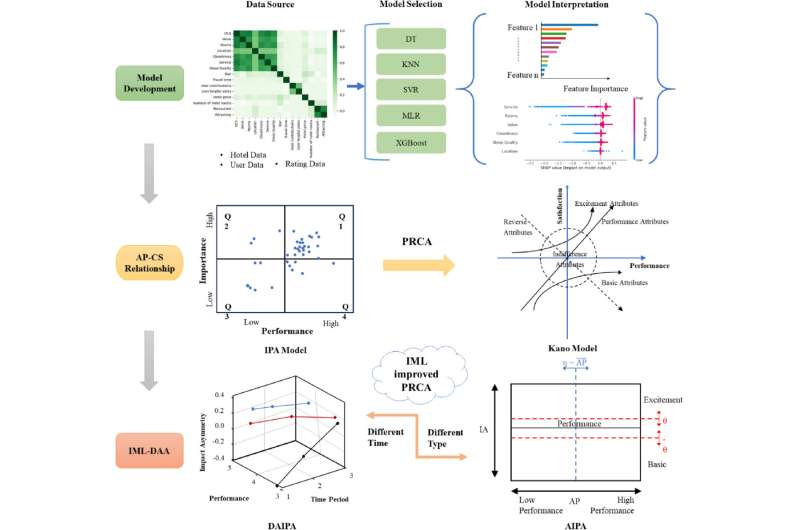
Customer satisfaction in the service sector, particularly within hospitality, has long been a focal point for both academic research and practical application. Traditional analyses, such as the Kano model and importance-performance analysis (IPA), have offered valuable frameworks but often fall short in capturing the intricate and non-linear nature of the attribute performance-customer satisfaction (AP-CS) relationship.
A study published in Data Science and Management on January 11, 2024, employs a novel machine learning approach to reveal the complex relationship between hotel service attributes and customer satisfaction, providing actionable insights to improve the guest experience.
This study advances beyond conventional analysis by introducing a machine learning-based framework that unravels the intricate interplay between hotel service attributes and customer satisfaction. Through the analysis of 29,724 TripAdvisor reviews of New York City hotels, the research team has formulated an interpretable machine learning-based dynamic asymmetric analysis (IML-DAA) model.
This pioneering method integrates extreme gradient boosting (XGBoost) with SHapley Additive exPlanations (SHAP), achieving unparalleled accuracy in predicting customer satisfaction and elucidating the impact of specific service attributes on overall guest contentment. Distinct from prior models, IML-DAA skillfully captures non-linear relationships and the changing influence of these attributes over time, providing a detailed insight into customer preferences.
The model's capability to adapt dynamically to shifting customer expectations offers actionable insights, empowering hotel managers to strategically refine service attributes, prioritize enhancements, and navigate market fluctuations.
According to the study's lead researcher, Prof. Shaolong Sun, "Our approach leverages the power of interpretable machine learning to not only predict customer satisfaction more accurately but also to provide actionable insights into how various service attributes contribute to overall satisfaction."
The methodology empowers stakeholders to make informed decisions on service improvement, resource allocation, and strategic planning, adapting proactively to changes in consumer expectations. This study represents a pivotal advancement in harnessing machine learning to refine customer satisfaction strategies in the hospitality sector.
More information: Jie Wang et al, The relationship between attribute performance and customer satisfaction: An interpretable machine learning approach, Data Science and Management (2024). DOI: 10.1016/j.dsm.2024.01.003
Provided by TranSpread
Citation: Machine learning approach sheds new light on hotel customer satisfaction (2024, April 3) retrieved 3 April 2024 from https://techxplore.com/news/2024-04-machine-approach-hotel-customer-satisfaction.html
This document is subject to copyright. Apart from any fair dealing for the purpose of private study or research, no part may be reproduced without the written permission. The content is provided for information purposes only.
